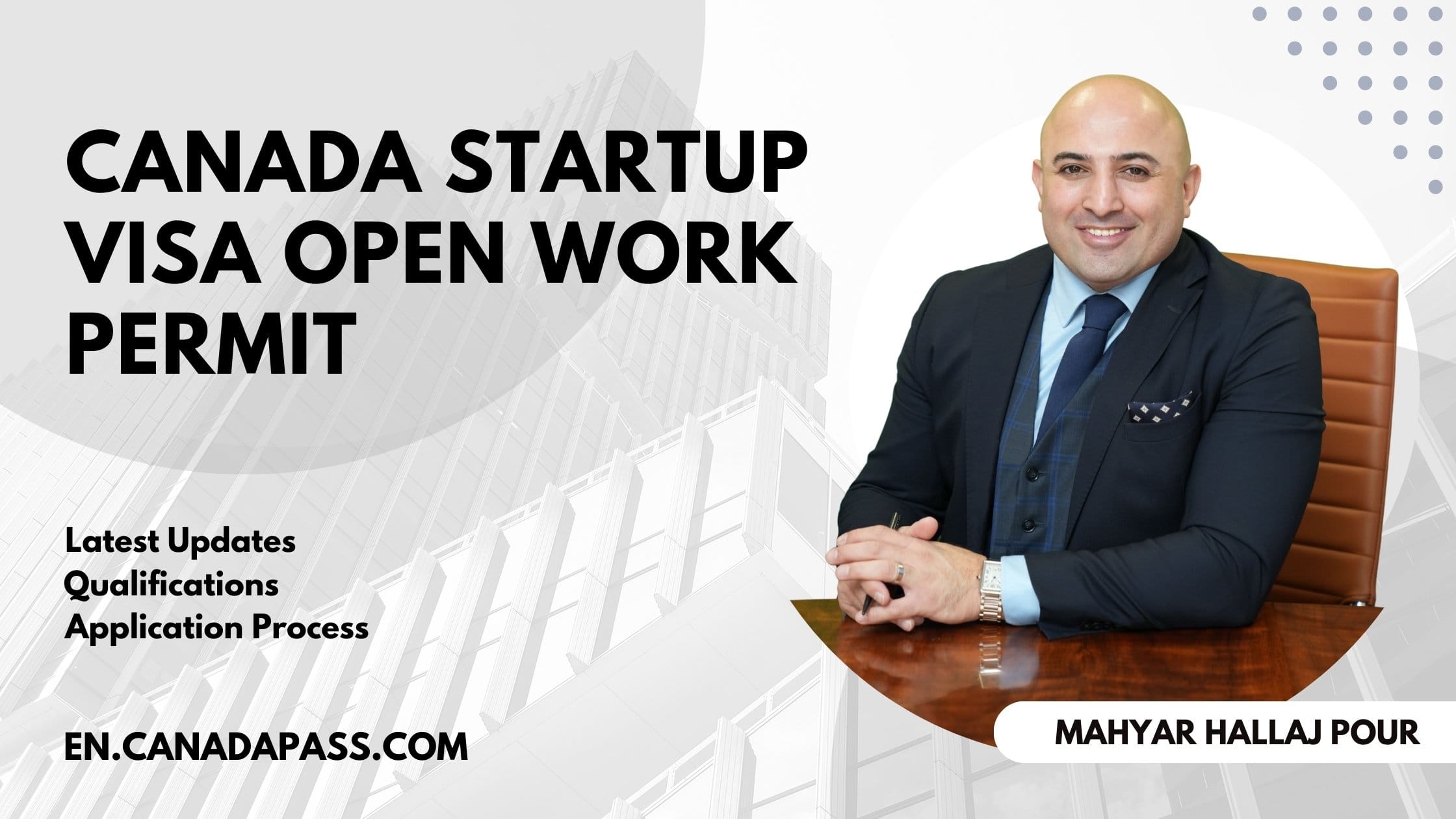Updated as of October 2025. This article provides an in-depth overview of relocating to Canada, covering everything from initial considerations to practical steps and long-term settlement.
Canada continues to attract global talent and families seeking a high quality of life, with its welcoming policies and diverse opportunities. In 2025, the country aims to welcome 395,000 new permanent residents, focusing on economic growth, family reunification, and addressing labor shortages, amid adjustments to balance housing and affordability pressures. This guide explores why moving to Canada is appealing, whether you can move to Canada, and the steps to make it happen, emphasizing that immigration is a personal decision influenced by your skills, finances, and goals.
Disclaimer: This article has been reviewed by IRCC lawyer Mahyar Hallaj Pour CEO of Canadapass Immigration firm. For detailed and updated information, always consult with us or visit official websites, such as Immigration, Refugees and Citizenship Canada (IRCC), as policies can change.
Canada Immigration At-a-Glance: Key 2025 Immigration Changes
To help you quickly understand the evolving landscape, here’s a summary of major updates from IRCC’s 2025-2027 Immigration Levels Plan and recent policy shifts:
| Change | Details | Impact |
|---|---|---|
| Permanent Resident Targets | 395,000 in 2025, 380,000 in 2026, 365,000 in 2027 (reduced from prior projections). Over 40% prioritized for in-Canada applicants. | Lower odds for new applicants; focus on those already in Canada. |
| Express Entry Updates | CRS points for job offers (arranged employment) removed effective March 25, 2025. Emphasis on category-based draws (e.g., French speakers, trades, healthcare). | Profiles without job offers now more competitive; aim for high scores in other areas. |
| PGWP Eligibility | From November 1, 2024, non-university programs must link to eligible fields of study tied to labor shortages (e.g., agriculture, healthcare—920 fields as of June 2025). | Restricts options for international students; check IRCC’s CIP list. |
| PNP Quotas | Significant reductions (e.g., BC to 4,000, Ontario down 50%, federal PNP from 110,000 to 55,000 initially, with some boosts). Quebec moratorium on Skilled Worker stream until June 2025. | Fewer spots; provinces pausing intakes, target open streams early. |
| New Pilots | Rural Community Immigration Pilot (RCIP) and Francophone Community Immigration Pilot (FCIP) launched in 2025 for rural/remote areas. | Opportunities in smaller communities; require community recommendation. |
| Closures | Agri-Food Pilot closed May 14, 2025; federal Immigrant Investor and Self-Employed programs ended (Quebec Investor under review). | Shift to other pathways like Start-up Visa. |
| Temporary Residents | Caps: 673,650 arrivals in 2025; spousal work permits tightened (eligible for spouses of TEER 0-3 workers from Jan 21, 2025). | Harder for families; plan for private insurance during waits. |
| Backlogs | Over 958,850 applications as of August 2025, with increases in study permits. | Expect delays, monitor IRCC processing times. |
For the latest, visit IRCC’s official site.
Why Consider Moving to Canada?
Canada remains a top destination for those seeking a high quality of life, offering a blend of opportunities and challenges that make it an appealing yet thoughtful choice for relocation in 2025. Here’s why moving to Canada might be right for you, along with key considerations to weigh:
- Universal Healthcare: Access to publicly funded medical care is a major draw, though wait times and provincial eligibility rules can vary.
- Safe and Diverse Communities: Canada boasts low crime rates and a multicultural society that embraces diversity, fostering inclusivity for newcomers.
- Strong Job Markets: Sectors like tech, healthcare, and energy are thriving, providing opportunities for skilled workers, though aligning with in-demand roles is key given 2025’s competitive immigration quotas.
- Excellent Education: World-class schools and universities attract families and students, with programs supporting lifelong learning.
- Natural Beauty and Lifestyle: From stunning landscapes to outdoor activities, Canada offers a vibrant lifestyle, though harsh winters in many regions require adaptation.
- Economic and Political Stability: A steady economy and democratic framework provide long-term security, appealing to those seeking stability.
However, moving to Canada comes with challenges:
- High Living Costs: Major cities like Toronto and Vancouver face rising housing and rental costs, with affordability pressures impacting newcomers.
- Housing Shortages: Recent public concerns highlight limited housing availability, making it critical to plan your destination carefully.
- Tax Burdens: Higher taxes support social programs but may feel steep compared to other countries.
- Adaptation Challenges: Adjusting to cold climates and navigating the competitive immigration backlog (over 958,850 applications in August 2025) can be daunting.
Is moving to Canada worth it in 2025?
For skilled workers and investors, the long-term benefits of career growth, safety, and quality of life are compelling, but success depends on aligning with in-demand jobs and navigating tightened quotas.
Eligibility and Requirements
Relocating to Canada involves meeting specific criteria tailored to your chosen immigration pathway. Below is a clear overview of the qualifications, requirements, and documentation needed to help you understand what it takes to move to Canada in 2025.
Core Qualifications to Move to Canada:
- Education: A degree, diploma, or certificate, particularly in fields like tech, healthcare, or business, strengthens your application for programs like Express Entry or investor streams.
- Work Experience: At least one year of experience in a skilled, professional, or business-related role is often required, especially for pathways targeting entrepreneurs or skilled workers.
- Language Skills: Proficiency in English or French, measured by Canadian Language Benchmark (CLB) levels, is essential for most programs. Tests like IELTS or CELPIP are standard, though some pathways allow alternatives.
Essential Requirements to Move to Canada:
- Financial Stability: You must demonstrate sufficient funds to support yourself and your family upon arrival, with amounts varying by family size and program.
- Clean Criminal Record: A police clearance certificate is mandatory to ensure admissibility.
- Health Checks: Medical exams by IRCC-approved doctors are required to confirm you meet health standards.
Required Documentation:
- A valid passport is necessary for all immigration pathways.
- Health checks and program-specific documents, such as business plans for investors, educational credentials for students, or job references for workers, are required depending on your chosen route.
- A visa is always necessary unless you are currently living in a visa-exempt country. However, for specific activities like working in Canada, you may need to change your visa and obtain a residence permit.
Eligibility by Age and Profile:
- If you’re over 35, investment programs like the Start-up Visa or Quebec Investor Program may suit you, especially if you have significant business experience or capital.
- For those aged 18 to 30, a study permit is often a strong starting point, potentially leading to permanent residency.
- If you have substantial business experience or entrepreneurial ventures, pathways like the Start-up Visa or Provincial Nominee Programs (PNPs) for entrepreneurs could be ideal.
- There’s no strict age limit to move to Canada, but points-based systems like Express Entry favor younger applicants (under 45). Older applicants with strong business credentials or unique skills can still qualify.
- Family members of Canadian residents through sponsorship programs can also apply.
Language Proficiency:
- Proficiency in English or French is required, typically proven through tests like IELTS or CELPIP, aiming for CLB level 7 or higher for most programs.
- Some pathways, like certain PNPs or investor programs, allow you to move to Canada without IELTS if alternative language proof is accepted.
To determine your eligibility with precision, complete our free assessment form, which is designed to evaluate your qualifications and match you with the most suitable immigration pathways based on your unique profile and goals. This quick and user-friendly tool provides personalized insights to guide your next steps.
Pathways and Programs to Move to Canada
Canada offers a variety of immigration programs and pathways designed to meet diverse needs, from skilled workers and entrepreneurs to students and families. These options provide opportunities to relocate and contribute to the country’s economy and communities. Below, we break down key programs, including work-focused routes, student pathways, family sponsorship, specialized pilots, and intra-company transfers, tailored for 2025.
Express Entry System
The Express Entry program is a fast-track pathway for skilled immigrants, using a points-based system to rank candidates for permanent residency. Updated for 2025, it emphasizes category-based selection to target labor shortages in areas like healthcare, trades, and education, with a focus on applicants already in Canada through the Canadian Experience Class.
- How It Works: Create a profile and receive an Invitation to Apply (ITA) based on your Comprehensive Ranking System (CRS) score. No points are awarded for job offers in 2025, so focus on education, language proficiency, and Canadian work experience.
- Move to Canada Points Calculator: Use IRCC’s official CRS tool or a Canada PR points calculator to estimate your score and eligibility.
- Targeted Draws: Priority for French speakers, healthcare professionals (e.g., nurses and doctors), trades workers, and educators to address 2025 priorities.
Work-Focused Pathways
If you’re looking to move to Canada for job opportunities, several programs support workers, including those with remote roles or company transfers.
- Work Permits and Jobs to Move to Canada: Secure a job offer for a work permit. In-demand sectors like tech, healthcare, and energy offer strong prospects in 2025. Options include the Global Talent Stream for fast processing.
- Move to Canada and Work or Move to Canada for Work: Employer-specific permits allow you to start working immediately, leading to permanent residency via Express Entry or Provincial Nominee Programs (PNPs).
- Move to Canada with Remote Job: Remote workers for foreign employers can enter on a visitor visa for up to six months without a permit, but for longer stays, apply for an open work permit or transition to a Canadian role.
- Intra-Company Transfer (ICT): For employees of multinational companies with Canadian operations, the ICT program allows transfers to Canada without a Labour Market Impact Assessment (LMIA). Eligible roles include executives, managers, or specialized knowledge workers with at least one year of company experience. Permits are typically valid for one to three years, with extensions possible, and can lead to permanent residency via Express Entry’s Canadian Experience Class if you gain Canadian work experience.
- PNPs: Provinces nominate workers for local needs, with 2025 quotas reduced but still offering spots in business and skilled trades streams.
Professionals in specific fields can benefit from targeted opportunities:
- Move to Canada as a Nurse, Doctor, or Teacher: Express Entry draws prioritize these roles in 2025, with no job offer points but high demand in category selections.
Student Pathways
International students can transition to permanent residency after studies.
- Move to Canada as a Student: Apply for a study permit in eligible fields tied to labor needs. From November 2024, non-degree programs must align with 920 shortage areas like healthcare and agriculture for PGWP eligibility.
- Post-Graduation Work Permit (PGWP): Work for up to three years after graduation. 2025 updates include language requirements (CLB 5 minimum) and field-specific rules, with exemptions for degree programs.
Business and Entrepreneur Pathways
Entrepreneurs and self-employed individuals have dedicated options.
- Move to Canada Self Employed: The federal Self-Employed Program is paused until 2027, but Quebec’s version remains open for cultural or athletic professionals.
- Start-up Visa: Ideal for innovative businesses with support from designated organizations. SUV program 2025 changes include priority processing for incubator-backed applications and a cap of 10 per organization to reduce backlogs.
Family Sponsorship
Reunite with loved ones through sponsorship.
- Move to Canada with Family and Sponsor Someone to Move to Canada: Spouses, partners, and children can be sponsored easily. For parents and grandparents, the 2025 Parents and Grandparents Program (PGP) accepts up to 25,000 applications, with invitations starting July 28 for 2020 interest forms. Processing times are 24 months outside Quebec.
- Move to Canada as a Retiree or Retiree Move to Canada: No dedicated retiree visa, but sponsorship via PGP or Super Visa (up to five-year stays) allows extended visits. Explore investor programs for financial independence.
Other Specialized Pathways
Additional routes for unique circumstances.
- Move to Canada for Healthcare: Healthcare workers qualify under Express Entry’s 2025 category draws.
- Move to Canada for Free (Refugees): Government-Assisted Refugees receive support, including free healthcare via the Interim Federal Health Program (IFHP) until provincial coverage applies.
- Get Paid to Move to Canada: Rural pilots like RCIP and FCIP offer incentives for settling in smaller communities, including job support and PR pathways. Launched in January 2025, they target labor shortages in rural and Francophone areas.
Key 2025 Notes and Closures
- Quota Reductions: Overall targets are 395,000 PRs, with PNPs and other streams affected.
- Closures: Agri-Food Pilot ended May 2025; federal Self-Employed and Investor programs closed, shifting focus to Start-up Visa and Quebec options.
Pathway Comparison Table
| Pathway | Ideal For | Key Requirements | Processing Time (2025 Est.) | Leads to PR? |
|---|---|---|---|---|
| Express Entry | Skilled workers | CRS score, language proficiency | 6 months | Yes |
| PNP | Province-specific jobs | Job offer, nomination | 6-12 months | Yes |
| Intra-Company Transfer (ICT) | Multinational employees | 1+ year company experience, executive/manager role | 2-10 weeks (work permit) | Potential via CEC |
| Start-up Visa | Entrepreneurs | Designated support, business plan | 12-18 months | Yes |
| Study Permit/PGWP | Students | Eligible field, enrollment | 8-12 weeks (permit); 3-6 months (PGWP) | Potential |
| Family Sponsorship (PGP) | Parents/Grandparents | Sponsorship, income proof | 24 months | Yes |
| RCIP/FCIP | Rural/Francophone workers | Job offer, community endorsement | Varies by community |
Steps to Move to Canada
Relocating to Canada requires a clear, structured process to navigate the immigration system effectively. This section outlines the essential steps to guide you toward a successful application in 2025. Below, we detail the process, highlight the easiest routes, and provide practical tips for planning your move, including considerations for finances and pets.
Step-by-Step Process
To begin your journey, follow these key steps to move to Canada, ensuring you meet all requirements and apply legally:
- Assess Your Eligibility:
- Use Immigration, Refugees and Citizenship Canada (IRCC) tools or contact a Canada Immigration Lawyer to evaluate your qualifications for programs like Express Entry, Provincial Nominee Programs (PNPs), or study permits.
- Choose Your Pathway:
- Select a program that aligns with your profile, such as Express Entry for skilled professionals, PNPs for province-specific opportunities, study permits for students, or the Start-up Visa for entrepreneurs.
- Gather Required Documents:
- Collect essential documents, including a valid passport, language test results (e.g., IELTS or CELPIP), educational credentials, work references, police certificates, and medical exam results. Program-specific documents, like business plans for investors, may also be needed.
- Submit Your Application Online:
- Apply to move to Canada through IRCC’s online portals or provincial systems. Ensure you follow legal requirements to move to Canada legally, avoiding errors that could delay your application.
- Complete Biometrics and Interviews:
- Provide fingerprints and photos at a designated center. Some programs may require interviews to verify your application details.
- Await Decision and Plan for Arrival:
- Processing times vary (e.g., 6 months for Express Entry, 24 months for family sponsorship). Expect potential delays due to backlogs, with over 958,850 applications pending as of August 2025. Prepare for your move by researching housing and job opportunities.
Easiest and Fastest Routes
For those seeking the easiest way to move to Canada or the fastest way to move to Canada, consider these options:
- Express Entry: Ideal for skilled professionals, with processing times around 6 months for high-scoring candidates in 2025 category-based draws (e.g., healthcare, trades).
- Provincial Nominee Programs (PNPs): Target provinces with open streams, like Nova Scotia, despite reduced quotas. Processing can take 6-12 months.
- Rural Pilots (RCIP/FCIP): The Rural Community Immigration Pilot and Francophone Community Immigration Pilot, launched in January 2025, offer quicker paths for those willing to settle in smaller communities, often with community-endorsed job offers.
These routes are often considered the best way to move to Canada for their streamlined processes, but eligibility doesn’t guarantee approval due to competitive quotas.
Practical Tips for Planning
To ensure a smooth transition, consider these factors:
- Financial Planning:
- Show sufficient settlement funds (e.g., CAD $13,757 for a single applicant in 2025, per IRCC).
- While challenging, some programs like refugee streams or rural pilots may provide support. Otherwise, save for fees and living costs.
- Rare, but possible for Government-Assisted Refugees with fully funded support. Most applicants need personal funds.
- Move to Canada with Pets:
- Plan logistics early, including pet vaccinations, microchipping, and import permits. Check the Canadian Food Inspection Agency for requirements, like rabies certificates, to avoid delays at the border.
- Managing Expectations:
- Be prepared for job market integration, credential recognition, and potential delays from quotas and backlogs. Regularly check IRCC processing times and apply early to improve your chances.
Costs and Financial Planning
Planning your finances is crucial when moving to Canada, as costs can add up quickly for applications, travel, and initial settlement. For individuals, expect total expenses ranging from CAD $15,000 to $30,000, covering immigration fees, moving costs, and early living expenses. These figures vary based on family size, chosen pathway, and destination.
Key costs include:
- Application Fees: Processing fees are CAD $950 per adult, plus the Right of Permanent Residence Fee (RPRF) of CAD $575. These are standard for programs like Express Entry and are adjusted annually.
- Proof of Funds: IRCC requires you to show settlement funds to support yourself upon arrival (e.g., CAD $13,757 for a single applicant in 2025). This demonstrates financial stability without relying on social assistance.
- Other Expenses: Factor in language tests (around CAD $300), medical exams (CAD $200-500), document translations, and travel. For retirement planning, consider tax implications for transferring assets like a 401(k)—consult a financial advisor for rollovers or conversions to Canadian equivalents like RRSPs.
Once in Canada, open a local bank account shortly after arrival for easier access to funds and services. Use online cost calculators to estimate city-specific budgets, including housing and daily living, to tailor your plan.
Housing and Affordability
Canada’s housing market has seen significant strain from immigration growth and supply shortages, leading to rising prices, especially for rentals. This has created affordability challenges in major cities, making it important for newcomers to research options carefully.
Recent data for September 2025 shows a national average rent of CAD $2,123 per month, with declines in some areas due to increased supply. However, costs remain high in urban centers:
- Vancouver: Average CAD $2,776, down 8.2% year-over-year.
- Toronto: Average CAD $2,592, down 2.9%.
- Montreal: Average CAD $1,981, down 0.5%.
- Calgary: Average CAD $1,897, down 7.4%.
The cost of living in Canada is increasing, particularly in smaller cities experiencing inflation. To find affordable places, consider provinces like Alberta or Nova Scotia, or use websites like Rentals.ca to search listings and avoid scams. Calculators can help estimate where you can afford to live, factoring in whether moving to Canada is cheaper in certain regions.
City Cost-of-Living Table (2025 Averages)
| City | One-Bedroom Rent (CAD) | Two-Bedroom Rent (CAD) | Groceries/Month (Family of 4) |
|---|---|---|---|
| Toronto | $2,587 | $2,690 | $1,200 |
| Vancouver | $2,515 | $3,170 | $1,300 |
| Montreal | $1,647 | $1,930 | $1,000 |
| Calgary | $1,675 | $2,103 | $1,100 |
Settling in Canada
Once you’ve arrived in Canada, choosing the right place to live and adapting to your new environment are key to a successful transition. This section offers guidance on selecting a destination and accessing resources to ease your settlement, while acknowledging challenges like job integration, credential recognition, and healthcare access.
- Choosing Where to Live:
- Affordable Cities: Calgary stands out for its lower cost of living compared to other major cities, with average one-bedroom rents around CAD $1,675 in 2025.
- Job Hubs: Toronto offers robust job markets, especially in tech and finance, though rents are higher (around CAD $2,587 for a one-bedroom).
- Provincial Opportunities: Consider provinces like Nova Scotia, which increased its Provincial Nominee Program (PNP) quotas in 2025, making it a strong choice for permanent residency applicants. Research provinces based on your career and lifestyle goals.
- Local Communities and Support Centers:
- Connect with IRCC-funded settlement agencies and newcomer centers, which offer free services like job search workshops, language classes, and cultural orientation. These centers help with practical needs, such as opening a bank account or finding housing, and provide emotional support during adjustment.
- Join online groups and forums focused on your cultural background or nationality (e.g., via Facebook or Reddit communities for specific ethnic groups). These networks offer advice from those who’ve gone through similar experiences, helping you find familiar foods, events, or mentorship to ease homesickness and build a social circle.
- Challenges to Expect:
- Job Integration: Securing job in your field can be tough, especially for regulated professions like medicine or engineering, where credential recognition may require additional exams or certifications.
- Credential Recognition: Foreign qualifications often need assessment through organizations like World Education Services (WES), which can take time and cost CAD $200–$500.
- Healthcare Barriers: Provincial waiting periods (up to 3 months in ON, AB, QC, BC); lack of family doctors; cultural access issues. Healthcare for newcomers varies—get private insurance for waits.
Conclusion
Moving to Canada in 2025 offers a wealth of opportunities for personal and professional growth, from its welcoming communities to its vibrant job markets. This guide has walked you through the essentials: understanding why Canada is a top destination, checking your eligibility, exploring immigration pathways, following application steps, budgeting for costs, navigating the housing market, and settling into your new home. With tightened immigration quotas and evolving policies, careful planning is key to success. Start by researching programs like Express Entry, Provincial Nominee Programs, or study permits, and consider connecting with settlement agencies or online communities for tailored support. The best time to begin is now, but with competitive targets, early applications for 2026 may be necessary if 2025 spots fill up. Book your consultation with us to stay updated and take the next step toward your Canadian journey.
To relocate to Canada, you typically need a combination of education (e.g., a degree or diploma), work experience (at least one year in a skilled or professional role), and proficiency in English or French (proven through tests like IELTS or CELPIP). You’ll also need to show financial stability, a clean criminal record, and pass a medical exam. Requirements vary by program, so check with IRCC or book a consultation with us for a personalized assessment.
Immigration costs for an individual in 2025 range from CAD $15,000 to $30,000, covering application fees (CAD $950 processing + $575 Right of Permanent Residence Fee per adult), language tests, medical exams, and initial living expenses. Settlement funds, like CAD $13,757 for a single applicant, are also required. Use city-specific cost calculators to plan your budget effectively.
Canada offers diverse pathways, including Express Entry for skilled professionals, Provincial Nominee Programs (PNPs) for province-specific opportunities, study permits for students, the Start-up Visa for entrepreneurs, and family sponsorship for relatives. New rural pilots like RCIP and FCIP provide options for smaller communities. Each has unique requirements, with 2025 quotas favoring in-Canada applicants.
Housing costs are high in cities like Vancouver (CAD $2,515 for a one-bedroom) and Toronto (CAD $2,587), but places like Calgary (CAD $1,675) or smaller provinces like Nova Scotia are more affordable. Use platforms like Rentals.ca to find listings and avoid scams. Research local settlement agencies for housing support and connect with online communities to learn from others’ experiences.
Newcomers often face hurdles like securing jobs in regulated fields (e.g., medicine or engineering), where credential recognition may require extra steps through services like World Education Services. Healthcare access can be delayed due to provincial waiting periods (up to 3 months in some regions), so consider private insurance. Joining cultural or nationality-based online groups can help ease cultural adjustment and build a support network.









